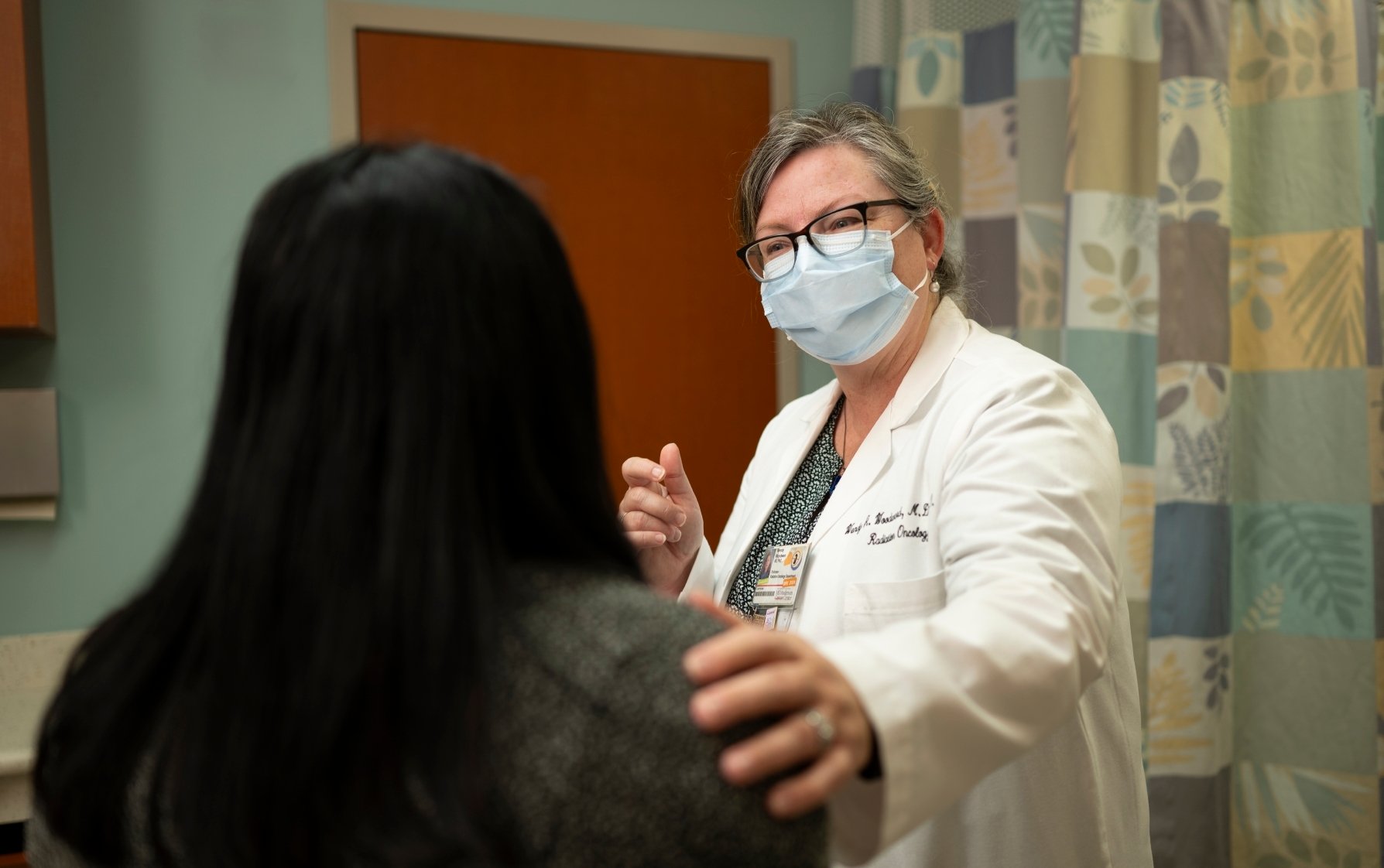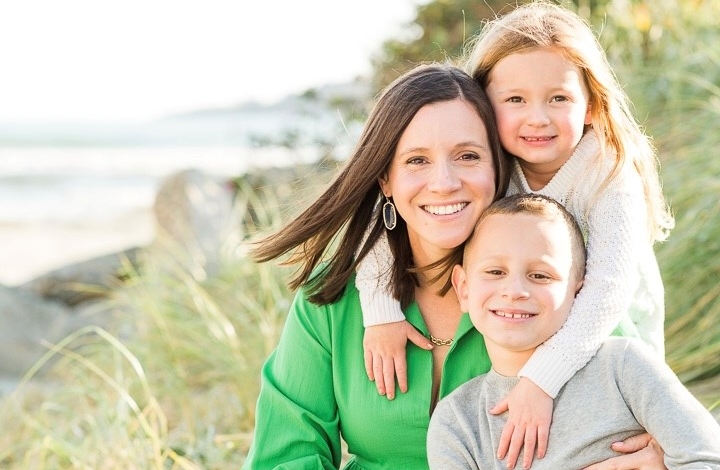- Diseases
- Acoustic Neuroma (14)
- Adrenal Gland Tumor (24)
- Anal Cancer (68)
- Anemia (2)
- Appendix Cancer (16)
- Bile Duct Cancer (26)
- Bladder Cancer (72)
- Brain Metastases (28)
- Brain Tumor (232)
- Breast Cancer (714)
- Breast Implant-Associated Anaplastic Large Cell Lymphoma (2)
- Cancer of Unknown Primary (4)
- Carcinoid Tumor (8)
- Cervical Cancer (160)
- Colon Cancer (166)
- Colorectal Cancer (118)
- Endocrine Tumor (4)
- Esophageal Cancer (44)
- Eye Cancer (36)
- Fallopian Tube Cancer (8)
- Germ Cell Tumor (4)
- Gestational Trophoblastic Disease (2)
- Head and Neck Cancer (12)
- Kidney Cancer (128)
- Leukemia (342)
- Liver Cancer (50)
- Lung Cancer (286)
- Lymphoma (278)
- Mesothelioma (14)
- Metastasis (30)
- Multiple Myeloma (100)
- Myelodysplastic Syndrome (60)
- Myeloproliferative Neoplasm (6)
- Neuroendocrine Tumors (16)
- Oral Cancer (100)
- Ovarian Cancer (172)
- Pancreatic Cancer (160)
- Parathyroid Disease (2)
- Penile Cancer (14)
- Pituitary Tumor (6)
- Prostate Cancer (146)
- Rectal Cancer (58)
- Renal Medullary Carcinoma (6)
- Salivary Gland Cancer (14)
- Sarcoma (238)
- Skin Cancer (296)
- Skull Base Tumors (56)
- Spinal Tumor (12)
- Stomach Cancer (64)
- Testicular Cancer (28)
- Throat Cancer (92)
- Thymoma (6)
- Thyroid Cancer (98)
- Tonsil Cancer (30)
- Uterine Cancer (82)
- Vaginal Cancer (18)
- Vulvar Cancer (20)
- Cancer Topic
- Adolescent and Young Adult Cancer Issues (20)
- Advance Care Planning (10)
- Biostatistics (2)
- Blood Donation (18)
- Bone Health (8)
- COVID-19 (362)
- Cancer Recurrence (120)
- Childhood Cancer Issues (120)
- Clinical Trials (632)
- Complementary Integrative Medicine (22)
- Cytogenetics (2)
- DNA Methylation (4)
- Diagnosis (232)
- Epigenetics (6)
- Fertility (62)
- Follow-up Guidelines (2)
- Health Disparities (14)
- Hereditary Cancer Syndromes (126)
- Immunology (18)
- Li-Fraumeni Syndrome (8)
- Mental Health (116)
- Molecular Diagnostics (8)
- Pain Management (62)
- Palliative Care (8)
- Pathology (10)
- Physical Therapy (18)
- Pregnancy (18)
- Prevention (920)
- Research (392)
- Second Opinion (74)
- Sexuality (16)
- Side Effects (606)
- Sleep Disorders (10)
- Stem Cell Transplantation Cellular Therapy (216)
- Support (402)
- Survivorship (322)
- Symptoms (182)
- Treatment (1786)
Inflammatory breast cancer patient empowers herself with research
3 minute read | Published May 26, 2016
Medically Reviewed | Last reviewed by an MD Anderson Cancer Center medical professional on May 26, 2016
When Valerie Fraser began experiencing swelling and noticed a rash on her left breast on New Year’s Day 2007, she knew something wasn’t right.
The Huntington Woods, Michigan, resident was told by several doctors it was an infection, but she knew it was more. Four weeks later, a biopsy revealed that she had two tumors of invasive ductal carcinoma. In addition, she learned of a secondary cancer: inflammatory breast cancer.
“It was like a bomb dropped on my life,” she says.
Research led to MD Anderson’s inflammatory breast cancer program
A paralegal by trade, Valerie immediately used her career skills to become an expert on inflammatory breast cancer. “I began by exploring some resources on the internet about the different forms of breast cancer, and I quickly learned that inflammatory breast cancer was one of the more difficult types to treat,” she says. “I realized how critical it was to dig deeper, locate the experts and be open to various treatment options.”
Valerie’s research led her to medical libraries and PubMed, where she read countless studies that left her feeling disheartened. “I then began looking for smaller studies with doctors who had done more novel things. That led me to MD Anderson and the Morgan Welch Inflammatory Breast Cancer Research Program and Clinic.”
At MD Anderson, Valerie worked with her care team as they developed a personalized approach. “Because I’d done my homework, I was well-informed and felt very confident with the treatment protocol offered to me here at MD Anderson.”
A new place for answers
After she began receiving her inflammatory breast cancer treatment here, Valerie discovered The Learning Center, MD Anderson’s consumer health library with a wide variety of resources.
“I tell people about The Learning Center all the time because I believe it’s a very valuable resource for patients at MD Anderson,” Valerie says. “There are very knowledgeable and well-educated people here. You can walk up to any of the staff and tell them what kind of cancer you have, and they will find exactly the most important resources that can help you to get quick information.”
Valerie has used The Learning Center’s resources to research a variety of areas, from her diagnosis to nutrition. She’s even used The Learning Center’s meditation tapes during flights from Michigan to Texas for treatment.
“It’s a valuable and very important part of this hospital,” Valerie says. “I encourage people to stop in and chat with the staff, and just take a few minutes to browse the shelves and get to know The Learning Center. I guarantee you will be so happy that you did!”
Life as an advocate
While Valerie began her research so she could be an active participant in her care team, it’s led her to a new role: breast cancer research advocate.
“If we allow fear to take control, we lose our precious voices and the ability to make clear and well thought-out decisions for our care," Valerie says.
That’s why Valerie has learned all she could about breast cancer research.
In the last nine years, she has worked with several national breast cancer organizations. She has served as a research advocate and peer reviewer, and helped many other cancer patients to find information and resources.
“It’s important that advocates have a voice at the table along with the expert researchers when grants are being reviewed for funding so that the patient perspective is at the center of that process,” she says.
As she tells others, “Be your best advocate, educate yourself and find the resources you will need to help in your decision making process. Then, down the road when you’re ready, pay it forward. Take that first step, it can make all the difference in the world for you and for others!”
Related Cancerwise Stories

Be your best advocate, educate yourself and find the resources you will need.
Valerie Fraser
Survivor





